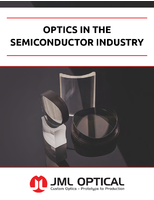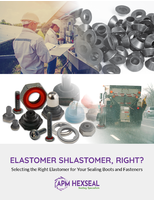Photo-IC Sensor optimizes display visibility.
Press Release Summary:
Incorporating photodiode, current amplifier, and luminous-efficiency correction, Model TPS859 can turn keypad or LCD backlight on or off, or adjust brightness according to ambient light condition. Unit features typical light current of 230 µA, and optical filtering technology, which enables incandescent to fluorescent light sensitivity ratio of 1.0. Housed in 1.6 x 1.6 x 0.55 mm surface mount package, TPS859 operates from 1.8-5.5 V, making it suited for battery-powered applications.
Original Press Release:
Toshiba Announces New Photo-IC Ambient Light Sensor for Consumer Electronics and Computer Displays
New Ultra-Compact and Surface Mount Photo-IC Sensor Reduces Power Consumption and Improves Visibility of Display
IRVINE, Calif., Aug. 5 /-- Today, Toshiba America Electronic Components, Inc. (TAEC)* introduced the TPS859, a new ultra-compact device, to its family of photo-IC ambient light sensors (ALS). Developed by Toshiba Corp. (Toshiba) the new photo-IC sensor incorporates a photodiode, a current amplifier and a luminous-efficiency correction (LEC) function in a single chip that is ideal for use in flat panel displays and various home appliances, and is also suitable for use in cell phones, notebook PCs, PDAs, camcorders, digital cameras, and other equipment requiring luminosity adjustment. The sensor can be used to turn a keypad or LCD backlight on or off, or adjust the brightness according to the ambient light condition.
The TPS859 provides ultra-high sensitivity with light current (IL) of 230microA(1) compared with 40microA(1) in the previous generation TPS852 -- an almost 6x improvement. The device also employs a new optical filtering technology which achieves luminous efficiency near to that of the human eye. The filter is able to reduce the ratio of incandescent to fluorescent light sensitivity (IL) from 1.2 (typ.) in the TPS852 to 1.0 (typ.) for the TPS859. The combination of the 16 percent improvement in the sensitivity ratio and the six-fold increase in sensitivity makes TPS859 the most robust device in the Toshiba ALS product line.
"The ultra-compact surface-mount package expands the potential applications for the TPS859, which could range from large applications such as flat panel displays and various home appliances to small applications including cell phones and digital cameras," explains Roger Shih, business development engineer for the optoelectronics group at TAEC. "In addition, the new filtering technology and the lower operating voltage improve both the sensitivity and the power saving capabilities of the component."
With excellent output linearity across various light sources, Toshiba's RoHS-compatible(2) TPS859 photo-IC ALS features an ultra-compact surface-mount package that measures 1.6 x 1.6 x 0.55 mm. The TPS859 can operate from 1.8V to 5.5V, which makes it ideal for battery-powered applications.
TPS859 - Absolute Maximum Ratings (Ta = 25 degrees C)
Characteristics Symbol Rating
Supply Voltage VCC -0.5 to 6 V
Operating Temperature Topr -30 to 85 degrees C
TPS859 - Technical Specifications
Characteristics Value Condition
Peak Sensitivity Wavelength 550 nm
^P (typ.)
VCC=3V, EV=100lx
Light Current IL(1) Typical: 230 microA (using CIE standard A
light)
Min.: 160 microA VCC=3V, EV=100lx
Light Current IL(2) Typical: 230 microA (using F10 fluorescent
Max: 320 microA light)
Light Current Ratio IL(1)/IL(2) 1.0 VCC=3V, EV=100lx
Dark Current ILEAK (max) 0.2 microA VCC=3V, EV = 0lx
Package 6-Pin SMD 1.6 mm x
1.6 mm x 0.55mm
Pricing and Availability
Samples of the Toshiba TPS859 Photo-IC ALS are available now, priced at $0.35 each in 10Kp quantities.
Toshiba's Discrete Products
Since 1986, Toshiba Corp. has ranked as the top discrete supplier on a worldwide basis, based on annual revenue from international shipments of total discrete products. According to the most recent annual report from market research firm Gartner Dataquest (San Jose, CA), Toshiba remained the top discrete semiconductor supplier. (Source: "2007 Worldwide Semiconductor Market Share Report," Gartner, released April 2008). More specifically, Toshiba is a leading supplier in a number of discrete product categories, including power transistors, rectifiers and thyristors, LMOS logic, CMOS logic, photocouplers, Toslinks(TM), LEDs, small signal diodes and transistors. The company's discrete devices are designed to meet the growing demand for high-performance and lower voltages in today's wireless telecommunications and consumer electronics applications, while emphasizing its strength in the automotive and industrial markets.
*About TAEC and Toshiba Corp.
Through proven commitment, lasting relationships and advanced, reliable electronic components, Toshiba enables its customers to create market-leading designs. Toshiba is the heartbeat within product breakthroughs from OEMs, ODMs, CMs, distributions and fabless chip companies worldwide. A committed electronic components leader, Toshiba designs and manufactures high-quality flash memory-based storage solutions, discrete devices, displays, advanced materials, medical tubes, custom SoCs/ASICs, digital multimedia and imaging products, microcontrollers and wireless components that make possible today's leading cell phones, MP3 players, cameras, medical devices, automotive electronics and more.
Toshiba America Electronic Components, Inc. is an independent operating company owned by Toshiba America, Inc., a subsidiary of Toshiba Corporation, Japan's largest semiconductor manufacturer and the world's third largest semiconductor manufacturer (Gartner, 2007 WW Semiconductor Revenue Ranking, April 2008). For additional company and product information, please visit http://www.toshiba.com/taec/.
(1) Typical value at the following conditions: VCC = 3V, EV = 100 lx.
(2) Toshiba Semiconductor Company defines "RoHS-Compatible" semiconductor products as products that either (i) contain no more than a maximum concentration value of 0.1% by weight in homogeneous materials for lead, mercury, hexavalent chromium, polybrominated biphenyls (PBBs) and polybrominated diphenyl ethers (PBDEs) and no more than 0.01% by weight in homogenous materials for cadmium; or (ii) fall within one of the stated exemptions set forth in the Annex to the RoHS Directive(3).
(3) Toshiba Semiconductor Company defines the "RoHS Directive" as the Directive 2002/95/EC of the European Parliament and of the Council of 27 January 2003 on the restriction of the use of certain hazardous substances in electrical and electronic equipment.
CONTACT: Poloi Lin of Toshiba America Electronic Components, Inc.,
+1-949-623-3098, poloi.lin@taec.toshiba.com
Web site: http://www.toshiba.com/taec




